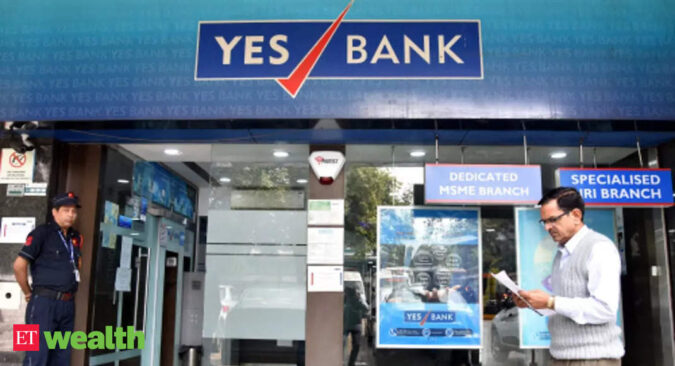The company’s shares were trading with losses of nearly 8% after tumbling as much as 12.4% on Monday after the bank reported an 80.66% YoY) drop in its standalone December quarter net profit to Rs 51.52 crore due to ageing-related provisions.
Following allegations of financial discrepancies, a restructuring plan was put in place to rescue the private lender in March 2020. The RBI also superseded the board and placed it under an administrator, Prashant Kumar, former deputy managing director and CFO of State Bank of India (SBI).
The bonds were written off as part of this restructuring plan. Equity holders did not face a similar write-down, but 75% of their shares were subject to lock-in for three years.
AT-1 bonds & Yes Bank
Additional Tier-1 bonds are high-yield securities that typically have loss-absorbing features, meaning they can be written off if a lender’s capital falls below a crucial level, which was invoked in Yes Bank’s case.
These bonds are a type of perpetual securities which offer higher risk and reward. Unlike other debt instruments, the interest rates offered here range around 9%.
The Securities and Exchange Board of India (Sebi) in September 2022 imposed a penalty of Rs 2 crore on Rana Kapoor, former chief executive of Yes Bank for misselling of these bonds to retail investors.
The regulator also observed that during the process of resale, retail investors were not informed about all the risks involved in the subscription of these bonds.
SEBI in an order had said that individual customers of the bank were persuaded to shift their investments in fixed deposits to AT1 bonds.
These AT1 bonds were offered to them as a ‘super fixed deposit’ product with high safety features, a higher rate of return and a lock-in period of five years.
SEBI noted that the individual investors were never apprised of the risk associated with such bonds.
In a petition to the court soon after the RBI imposed moratorium, AT-1 bondholders had filed a writ petition saying that they were willing to take a 80% haircut and accept equity in exchange of bonds.
Soon after RBI realized that Yes Bank may be on the verge of collapsing, it imposed a moratorium on March 5 and a final scheme on reconstruction of the bank was issued on March 13.
Next day, the administrator informed the stock exchanges that AT-1 bonds were extinguished – implying that bondholders will not receive a penny.
A win for retail and institutional investors, for now
Individual and institutional bondholders had filed several petitions in the Court, arguing that the bonds were mis-sold and could not be written off when equity was not. Notably, institutional investors such as mutual funds, including Reliance Nippon, and individuals had put as much as Rs 8,415 crore in Yes Bank’s AT-1 bonds, which are perpetual bonds without any maturity date.
63 moons technologies, which has an exposure of Rs 300 crore to the written-off additional tier 1 (AT1) bonds of Yes Bank, had launched a lawsuit against the private sector lender and the RBI.
63 moons had filed a petition in the High Court against the bank’s decision to write off the AT1 bonds as part of a rescue plan. The company had invested in 3,000 bond holdings of Yes Bank’s written-down AT1 bonds and has been holding these papers since March 2018.
The company filed the petition on June 1, 2020, against Yes Bank, the RBI, and the administrator appointed by the RBI. The petition claimed that the company’s Rs 300-crore investment in AT1 debenture bonds has been completely misused by the promise of good returns.
What next for investors?
Yes Bank’s Kumar on Saturday the bank had requested six weeks from the tribunal to appeal in the higher court.
“The judgment in itself is not questioning the regulatory guidelines in terms of writing off (AT1 bonds). I think there are questions in terms of the process,” Kumar told reporters after publication of the lender’s quarterly results.
“We have strong legal advises and opinions which interpret the issue in a different way and that makes a strong ground for us to appeal in the Supreme Court.”
In a stock exchange filing late Friday, the private lender said that it is in the process of preparing an appeal to the Supreme Court.
However, AT-1 bondholders may receive shares of the bank in case the Supreme Court upholds the Bombay High Court order, people aware of the development told ET.
